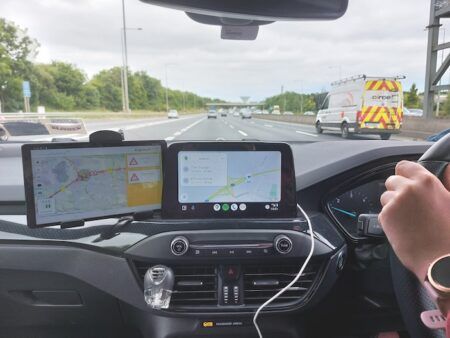The drive to make Mobility as a Service (MaaS) a reality in the UK gathered pace last week (ended September 23) as almost 200 European and US transportation operators, data/software experts, investors and policy makers packed out the iCentrum Innovation Building in Birmingham, for a conference entirely dedicated to the subject.
Speakers painted a vivid picture of a near future where the combination of autonomous vehicles and ubiquitous digitally-connected transportation could utterly disrupt decades of private car ownership. Opening speaker Lucy Yu, head of MaaS at the UK government’s Centre for Connected and Autonomous Vehicles, even predicted that it will soon be socially unacceptable to drive.
As the new day-long event, organized by UK’s Transport Systems Catapult, continued, other speakers from around the world shared their knowledge, experience and perspectives on how a digital interface can source and manage the provision of transport-related services to meet the mobility requirements of customers.
A vision frequently discussed was that travelers could become almost passive when it comes to organizing a journey. In the ultimate MaaS scenario, a person’s smartphone knows their diary and autonomously books all the transport that the customer needs to get to their appointment, paying all appropriate fares.
Realizing that dream, though, is some way off, delegates heard. Paul Campion of IBM Global Financing pointed out that one third of smartphone users do not use the phone to connect to the internet and the largest subset of that group are users of public transport. MaaS could include public transport only if those users are digitally upgraded.
There were other cautions, too. Laura Shoaf, MD of Transport for West Midlands, is among the keenest to trial MaaS, though it needs a name that resonates, she says. Stephen Joseph, executive director of the Campaign for Better Transport believes the focus should shift from “mobility” to “access” as a service, potentially reducing demand for transportation.
Several speakers highlighted the fact that privately-owned cars spend 96% of their time parked while Tony Lynch, CEO of Faxio, highlighted the phenomenon of demand for parking being so high that employees arrive an hour early for work just to get a space. His commute-share technology can resolve their problems, he says.
The thousands of apps for transport is a symptom that MaaS is needed, it was concluded at the conference, to simplify and streamline journeys for customers and transport providers and make more effective use of the data. MaaS Global has just released its own app for Helsinki, WHIM, which integrates multimodal journey planning with ticketing. The company’s co-founder Kaj Pyyhtiä believes it will soon bring MaaS to the world.
With players from all road transportation sectors taking part in the conference, including Uber, Appyparking, Mozio, NextBike and Enterprise Rent-a-Car, the conference developed into a lively networking session, for which no apps were needed.




